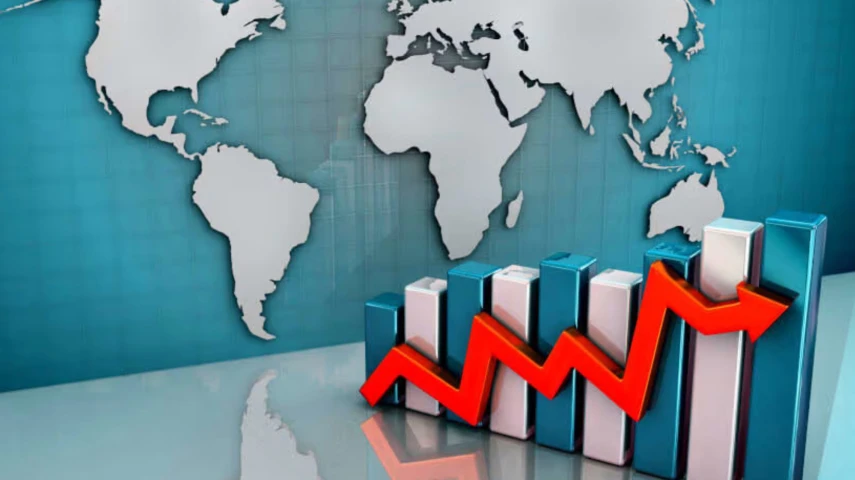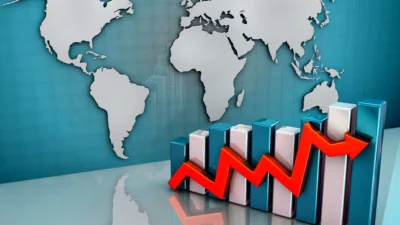Stage set for ‘unloved’ markets in 2024



The tides could soon be turning for emerging markets (EM) and global markets ex-US as global investors are encouraged to consider diversification and structural changes in the market in 2024, according to these fund managers.
In its outlook for the year ahead, Vanguard noted the global economy had proven more resilient than expected in 2023, though the US exceptionalism is set to fade.
“Valuations are most stretched in the US. As a result, we have downgraded our US equity expectations to an annualised 4 per cent–6 per cent over the next 10 years from 4.6 per cent–6.6 per cent heading into 2023,” it stated.
“Within the US market, value stocks are more attractive than they have been since late 2021 and small-capitalisation stocks also appear attractive for the long term. US equities have continued to outperform their international peers.
“The key drivers of this performance gap over the last two years have been valuation expansion and dollar strength beyond our fair-value estimates, but these are likely to reverse. Indeed, our Vanguard Capital Markets Model (VCMM) projections suggest an increasing likelihood of greater opportunities outside the US. We project 10-year annualised returns for non-US developed markets of 6.7 per cent– 8.7 per cent and for emerging markets of 6.3 per cent–7.3 per cent.”
The firm expects EM GDP to grow mostly in line with consensus in 2024, and to a greater degree than developed markets, at around 5 per cent for emerging Asia and 2 per cent–2.5 per cent for emerging Europe and Latin America.
Vanguard added: “A divergence theme is likely to continue across regions. Emerging Asia should benefit from an upturn in the global tech cycle and a modest boost from continued normalisation of China’s economy.
"The Euro area’s flirtation with recession and its relatively stubborn inflation could leave growth in emerging Europe below trend and consensus expectations.
“In Latin America, we expect growth below trend but in line with consensus, owing to lower expected US growth and more restrictive interest rates in both places.”
Betashares chief economist, David Bassanese, also highlighted opportunities arising from the global tech cycle.
“On the provision that growth can hold up and inflation [is] continuing to go down, as I do expect, the outlook for 2024 for both equities and bond market is looking encouraging, and what we may also see in 2024 is a bit of a catch-up in areas outside of the US tech sector, which has been so strong for so long, but valuations are looking pretty stretched,” he said.
“I think investors may start to look around for other areas of the market to invest in, so potentially the Australian market, potentially emerging markets, where valuations look somewhat cheaper.”
Manraj Sekhon, chief investment officer at Templeton Global Investments, observed: “US interest rate cuts and a weaker US dollar as well as signs of slowing growth in the United States are catalysts we believe will be positive for global ex-US and emerging market equities.
“The most attractive equity investment opportunities in 2024, in our view, centre on emerging markets, global equities ex-US and small-cap stocks.”
Schroders’ Alex Tedder, head of global and thematic equities, considered it an opportune time to look at unloved markets such as Japan and the UK.
He explained: “Japan’s market has been a laggard since its asset price bubble burst in 1992, with catastrophic consequences for the economy. After two decades without inflation and a currency that has depreciated 50 per cent against the US dollar, the Japanese economy is now highly competitive.
“What’s more, authorities there have woken up to the fact that more than half of companies on the stock market trade on less than the value of their assets (that is, have a book value of less than 1), as at end May 2023.
“In late 2022, a directive was issued to ‘encourage’ Japanese companies to return cash to shareholders, either via buybacks or higher dividend payouts. There has already been a startlingly strong response from the corporate sector, and we expect this to continue.”
Another Asian country poised for growth, according to Tom Wilson, head of emerging market equities at Schroders, is India. This is, in part, due to the fact that returns from infrastructure investment are high, demographics are supportive, and there remains scope for digitisation and smartphone penetration.
“However, caveats are required: issues of infrastructure, bureaucracy, protectionism, labour skills and labour code persist, and despite its scale India is not necessarily the first choice for export manufacturing FDI. But India’s prospects for the next decade look promising,” he said.
Meanwhile, in the case of Taiwan and Korea, the markets are likely to enjoy the benefits of trade, particularly in technology.
“We have a positive structural view on technology as the world becomes increasingly digitised. Seventy per cent of the benchmark in Taiwan is technology, while in Korea it accounts for 50 per cent, as at October 2023. Meanwhile, Korea also has strong battery companies with excellent long-term growth prospects from decarbonisation,” Wilson noted.
Recommended for you
Australia’s “sophisticated” financial services industry is a magnet for offshore fund managers, according to a global firm.
The latest Morningstar asset manager survey believes ETF providers are likely to retain the market share they have gained from active managers.
Negative market movements, coupled with net outflows, have prompted a near $6 billion decline in Challenger’s funds under management for FY25’s third quarter.
The real estate investment manager has positioned the APAC region for future growth with an internal promotion to the newly created role of deputy head of Asia Pacific.















